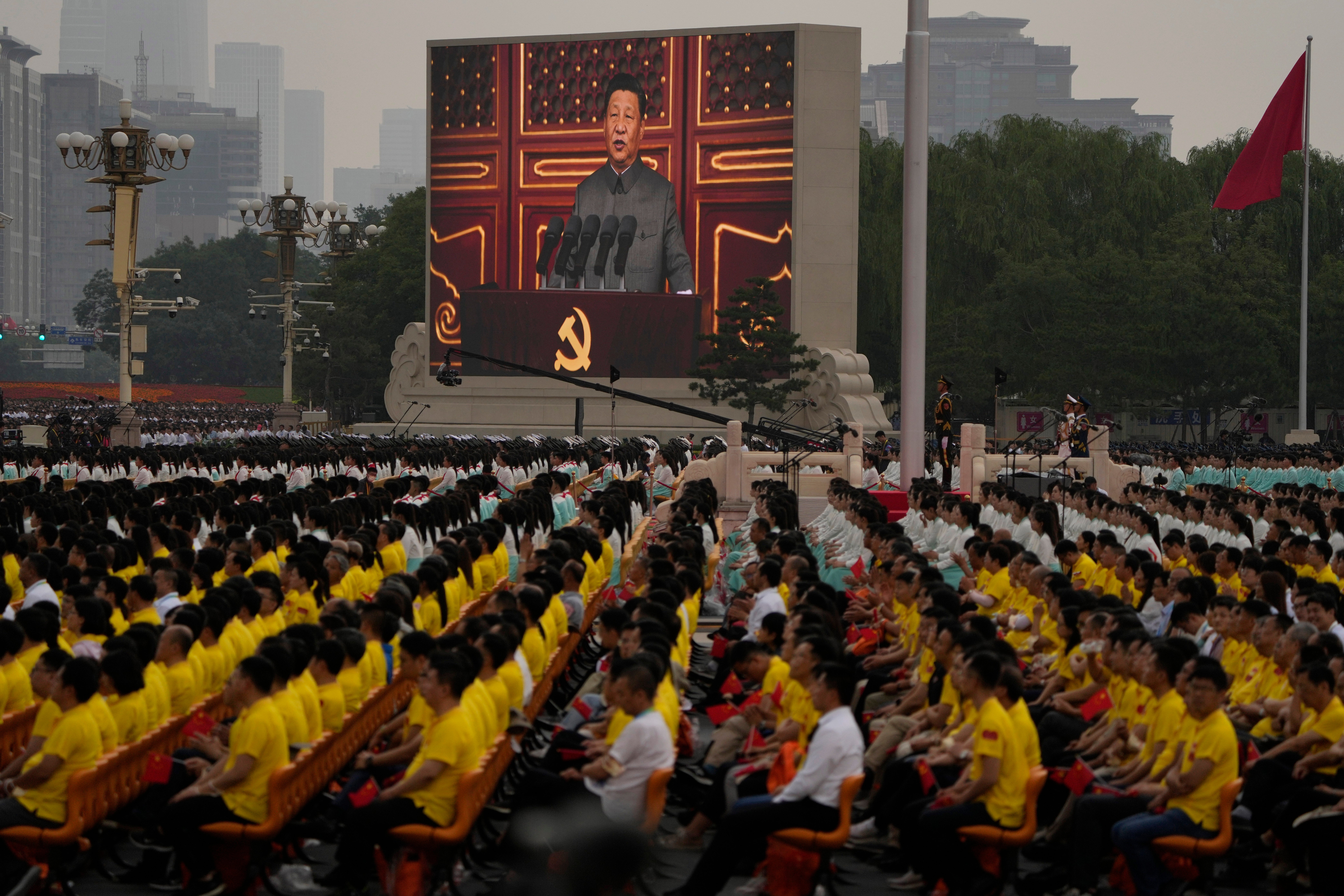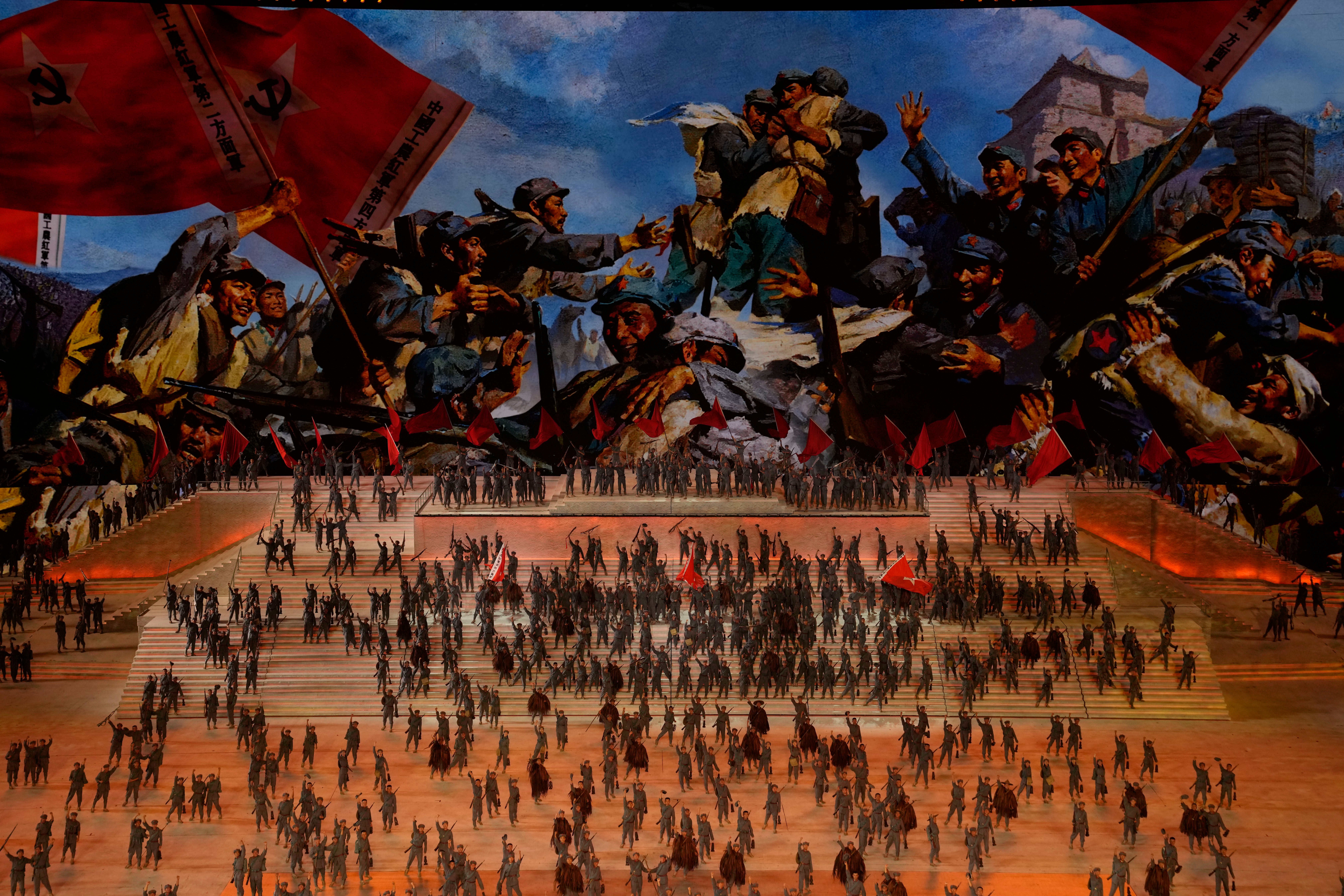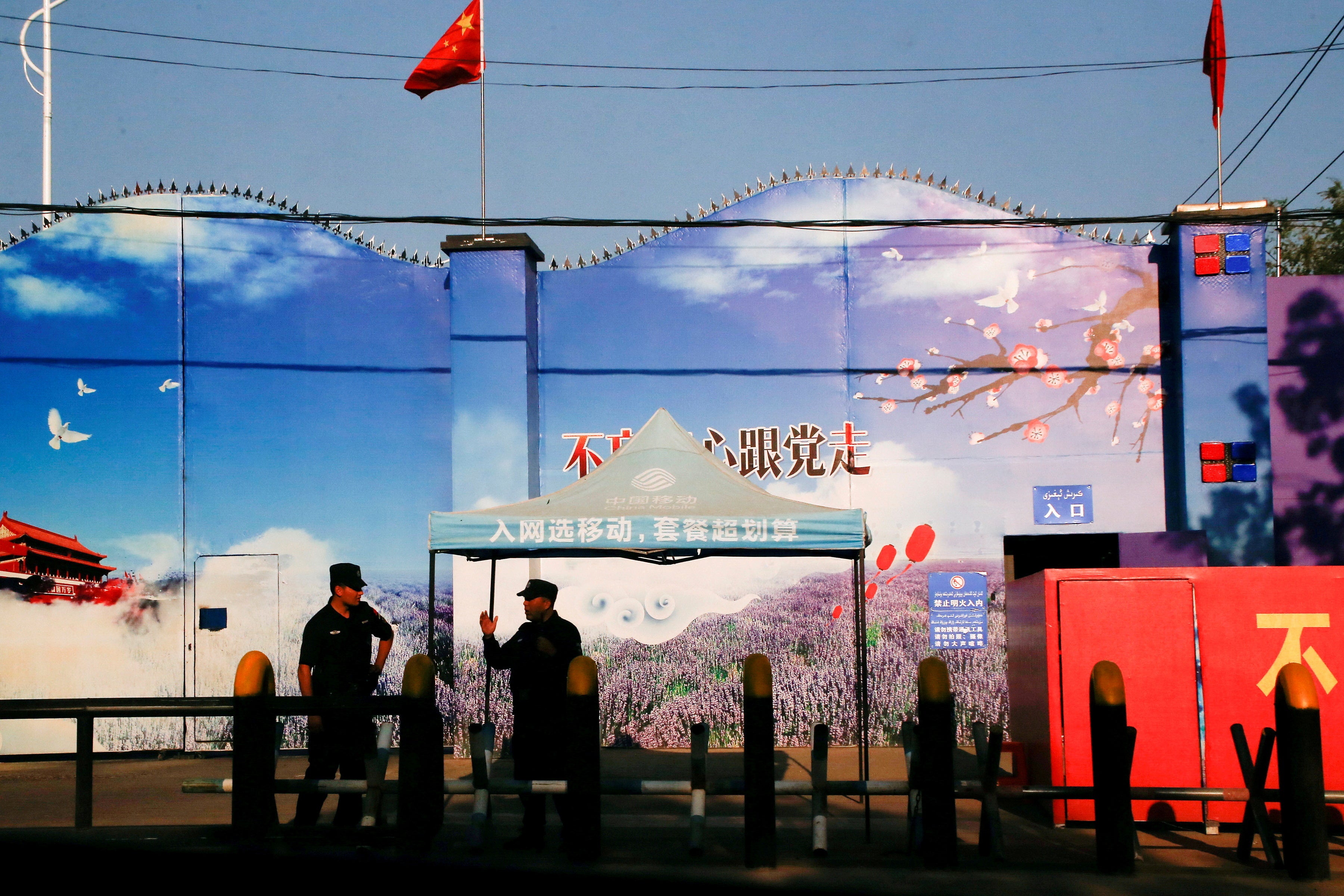China’s Communist Party anniversary: How Xi has combined Maoist discipline with high tech totalitarianism
Xi Jinping, viewed by many as the CCP’s most powerful leader since Mao Zedong, has adopted a mixture of old and new strategies to consolidate the party’s hold on power in China


China’s Communist Party (CCP) celebrated the centenary of its founding on Thursday, as Chinese President Xi Jinping delivered a speech warning off foreign forces from trying to “bully” China.
“Anyone who dares try to do that will have their heads bashed bloody against the Great Wall of steel forged by over 1.4 billion Chinese people,” he told an enthusiastic crowd waving China’s Communist Party flags.
In the speech, Xi highlighted the need to modernise China’s military in order to safeguard the country while he reiterated the importance of making the mission to reunite with Taiwan an “unswerving historical mission” for the party.
“All sons and daughters of China, including compatriots on both sides of the Taiwan Strait, must work together and move forward in solidarity, resolutely smashing any ‘Taiwan independence’ plots,” he said.
Regarding issues related to Hong Kong and Macau, Xi said while social stability will be ensured in both special administrative regions, it is also important for China to protect its security and sovereignty interests.
“We will stay true to the letter and spirit of the principle of ‘One Country, Two Systems’, under which the people of Hong Kong administer Hong Kong, and the people of Macau administer Macau, both with a high degree of autonomy,” he added.
Since he rose to power in 2012, Xi Jinping has targeted corruption within the party and ensured China’s continued economic success. Under his leadership, China has continued to modernise its military force and now has the world’s largest navy by number, with around 350 vessels.
Ahead of Thursday’s main ceremony, the CCP put together a dazzling performance on Monday to re-enact two particular eras in its history, which are the early struggles and recent achievements. The narrative almost skipped over the period between 1950 to 1970, during which Chairman Mao Zedong’s social and economic policies caused millions of deaths while pushing China into extreme poverty.

Another major focus of this year’s celebrations has been China’s alleged success in containing the coronavirus pandemic, highlighted by a performance featuring the re-enactment of medical workers in protective gear combating the virus.
“The CCP is trying to frame a glorious and great image by covering up the terrible things that they’ve done in the past,” says Teng Biao, a Pozen visiting professor at the University of Chicago in the United States. “This is their usual tactic as they rely on distorted history and disinformation to construct their political image.”
A mixture of old and new tactics to rule
Xi Jinping, viewed by many as the CCP’s most powerful leader since Mao Zedong, has adopted a mixture of old and new strategies to consolidate the party’s power to rule China, now the world’s second largest economy.
According to Teng, Xi has revived Mao’s strategy of creating ideological discipline, with him as a central focus. Since he became president, Xi has demanded Chinese citizens follow elements from the “Xi Jinping [school of] thought on socialism with Chinese characteristics”.
The party featured Xi in much of its propaganda materials and party members study his speeches constantly as well as memorising key passages from his writings. “The political languages and political moves adopted by Xi are very similar to the ones used by Mao during his era. This is probably part of his political dream,” says Teng.
The CCP is trying to frame a glorious and great image by covering up the terrible things that they’ve done in the past
After the Mao era, under Deng Xiaoping and subsequent leaders, China developed a limited space for civil society to grow from the 1980s to early 2000s.
So when Xi Jinping took power in 2012, even though society was still controlled by the party, the actual influence that it could exert through the party’s ideologies was in fact very limited. “Whether it was intellectuals, Chinese citizens or Communist Party officials, very few of them actually believed in party ideologies put forward by the CCP,” says Teng Biao.
Despite this distinction, some experts believe Xi Jinping has maintained a degree of continuity in other ways. “The tightening trend on civil society started around 2008, and we’ve seen a ratcheting up under Xi,” says Jeff Wasserstrom, a historian of modern China at the University of California, Irvine.
“In general,” he adds, “one thing to stress is that the party continues to show a knack for tinkering and adapting, trying new things, while not altering some basic things that are fundamental to Leninism, belief that a tightly controlled party is best for moving the country forward, and emphasising anti-imperialist themes in propaganda.”
The imposition of high-tech totalitarianism
Determined to remain in power for as long as he can, Xi Jinping abolished the term limit on the position of party secretary in 2018, paving the way for a possible life-long presidency. In order to maintain the CCP’s one-party dictatorship, Xi has imposed what some experts called “high-tech totalitarianism” on civil society to help safeguard the party’s legitimacy to rule.
Teng Biao says that from the party’s perspective, high-tech totalitarianism is a necessary measure to prevent citizens from rebelling against the party’s rule. “The CCP believes this is the only way for them to stay in power.”
The CCP uses advanced technology, such as artificial intelligence and facial recognition, to closely monitor and restrict citizens’ activities. Additionally, the party also uses the internet to enforce strict censorship and spread large volumes of propaganda, which makes it harder for citizens to be enlightened by free information and knowledge that’s uncensored.
It has posed serious problems from a human rights perspective: in recent years, China has faced growing criticism and international pressure for its treatment of ethnic minorities in Xinjiang and the crackdown on civil society in Hong Kong. Democratic countries have been trying to impose sanctions on Chinese officials as a countermeasure.

“Xi Jinping has made many mistakes since he came to power,” says Teng. “A lot of his policies are anti-human, including the crackdown on freedom and rule of law in Hong Kong, the persecution of Uyghurs in Xinjiang and other human rights violations that his government has committed against minorities in Tibet, Inner Mongolia and even Han Chinese citizens.”
An attempt to “rewrite history”
Xi Jinping didn’t just want to maintain power by tightening control over civil society. Since he took the presidency, the Chinese government has increased its efforts to control history. Under Xi, the CCP has launched a campaign against “historical nihilism”, which was characterised as any attempt to question the party’s role to lead through evidence from the past.
Beijing has not only set up a special unit under the Chinese Academy of Social Sciences to create an official version of the past, it has also set up a hotline for citizens to report any cases of historical nihilism to authorities.
“There have always been limits on debate about aspects of the past in the PRC, but there has been a very worrying trend lately to turning more and more issues and periods into hot-button ones,” says Wasserstrom.
Teng Biao says the CCP relies on changing history to increase the legitimacy of its rule because most Chinese citizens lack the ability to independently question the government’s narrative due to the strict regime of censorship imposed on civil society.
“When some Chinese citizens discover the truth about a certain period of history that doesn’t match with the CCP’s narrative through the internet or other channels, they could be enlightened and become an opponent of the CCP,” he explains.
However, since Beijing has intensified crackdowns on civil society since Xi Jinping took power, there is very little resistance left in society. “The high-tech totalitarianism imposed by the CCP and the party’s strict control of information means that the prospect of resistance originating from civil society will be very minimal,” says Teng.
Join our commenting forum
Join thought-provoking conversations, follow other Independent readers and see their replies
Comments
Bookmark popover
Removed from bookmarks